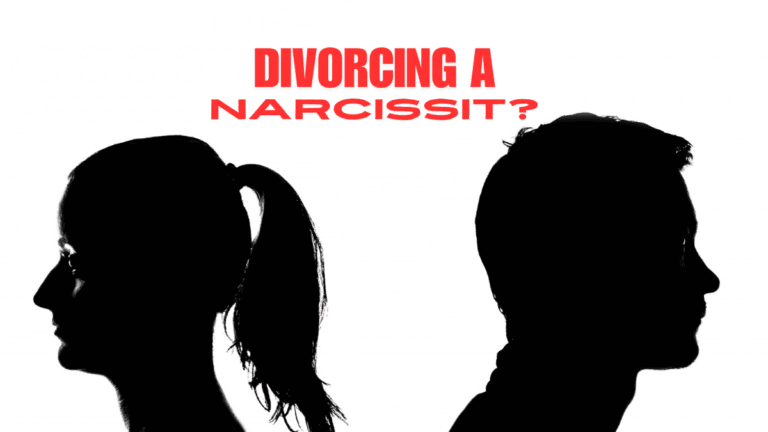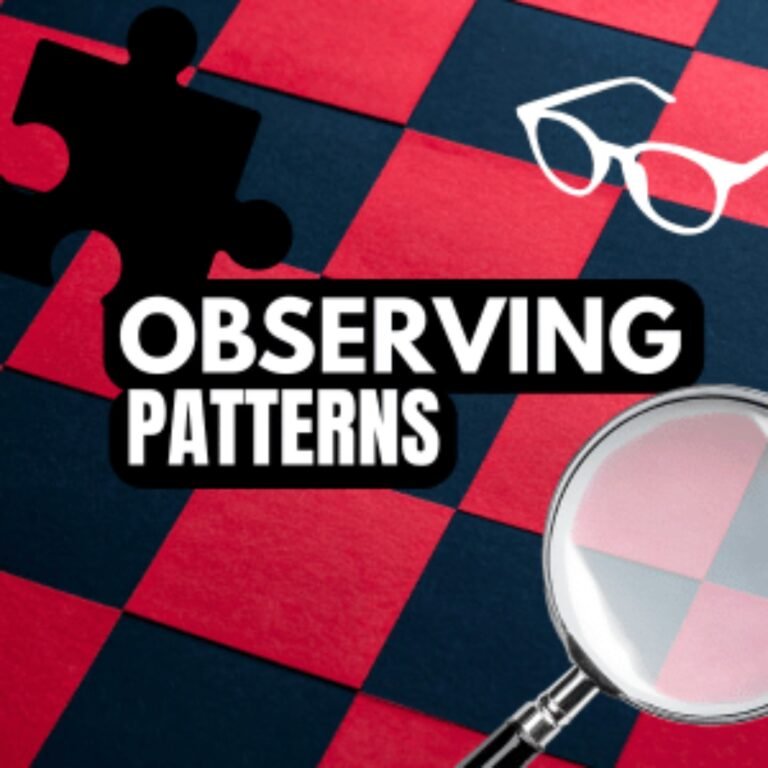Triangulation Explained: When Your Partner Uses Friends, Family, and Exes Against You
The following is a transcript of the episode from the Narcissistic Abuse Recovery Podcast.
Podcast: Narcissistic Abuse Recovery Podcast
Host: Lynn Nichols
Follow our work beyond the podcast: We publish essays and insights on Medium through our Moving Forward with Hope publication, and you can also find additional content and community updates on our Substack. Join us there to go deeper, connect with others, and support the movement.
Lynn is a heartfelt advocate for personal growth and empowerment, and writes with raw insight on navigating narcissistic abuse, toxic relationships, and sometimes the societal challenges tied to the patriarchy. With a deeply experiential approach, her stories shed light on the emotional complexities of breaking free from toxic patterns and reclaiming one’s voice. L.N. offers fresh perspectives on gender dynamics, self-worth, and healing, encouraging readers to rebuild from within and revolutionize their relationships.
Lynn is also a trauma-informed narcissistic abuse recovery coach and podcast host. She creates videos on her YouTube channel to bring the message of healing and recovery. Learn more on her website here.
Introduction
Picture this: You’re having dinner with your partner when they casually mention, ‘You know, my mom thinks you’ve been really distant lately. She’s worried about us.’
Wait. Hold on. Let’s pause right there for a second.
What just happened in that sentence?
Think about it for a moment.
Your partner didn’t say ‘I feel like you’ve been distant.’ They didn’t say ‘Can we talk about the distance between us?’ No. They brought their mom into it.
Now you’re not just talking with your partner. You’re suddenly dealing with your partner AND their mom’s opinion. Except the mom isn’t even there. She can’t explain what she meant. You can’t ask her questions. You can’t tell your side of the story.
Does this sound familiar? Have you been in conversations like this?
You’re in what’s called a triangle. And most people don’t even notice when it happens.
Let me say that again: A triangle. Three people. Except only two are in the room.
Or here’s another one – maybe this sounds familiar: Your sister calls and says, ‘Dad told me you think he’s been too critical lately, and honestly, I agree with you. But Mom doesn’t want us ganging up on him, so maybe you should back off for now.’
In one phone call, suddenly you’re involved with your sister, your dad, AND your mom. There are alliances forming. There are sides being taken. And you might not even remember saying Dad was too critical in the first place.
This is triangulation. And if you’ve been in a relationship with someone who has narcissistic traits, you’ve experienced this. Maybe constantly. Maybe so much that it started to feel normal.
But here’s what I want you to understand today: Triangulation is a manipulation tactic. It’s a way of controlling relationships by making sure direct, honest communication never actually happens.
Once you see how it works, you can’t unsee it. You’ll start noticing it everywhere – and more importantly, you’ll start recognizing when it’s being done to you.
Today, we’re going to break down exactly what triangulation is, why manipulative people use it, and how to spot it in real time.
Welcome back to the Narcissistic Abuse Recovery Podcast, I’m Lynn Your Host.
Why Manipulators Use Triangulation
Before we dive into what triangulation feels like, I want you to understand something crucial: Triangulation isn’t accidental. It’s strategic.
People who use triangulation aren’t just bad at communication. They’re not confused about how to have a direct conversation. They know exactly what they’re doing.
So why do they do it? What’s the point?
Triangulation serves three main purposes for someone who wants to control you:
Purpose One: Manipulation
Think about this: When someone brings another person into your conflict, what happens to the truth?
It gets filtered. It gets distorted. It gets shaped to serve their narrative.
They tell their friend one version of what happened. They tell their parent another version. They tell you a third version. And nobody can compare notes because everyone only has pieces of the story.
This gives them complete control over the narrative. They can make themselves the victim. They can make you the villain. They can change the story depending on who they’re talking to.
And here’s the manipulation: You can’t defend yourself against a story you don’t even know they’re telling.
Have you ever found out later that someone was saying things about you behind your back that weren’t true? That’s triangulation being used for manipulation.
Purpose Two: Maintaining Control
Here’s a question: What happens when two people talk directly to each other about a problem?
They might actually solve it, right? They might come to an understanding. They might resolve the conflict.
But if someone wants to maintain control over you, resolution is the last thing they want.
Think about it. If you solve the problem, you’re no longer dependent on them. You’re no longer confused. You’re no longer seeking their approval or trying to fix things.
Triangulation keeps conflicts alive. It keeps you off balance. It keeps you coming back to them to figure out what’s really going on.
As long as you’re defending yourself to invisible people, as long as you’re trying to measure up to their ex or their friend’s standards, as long as you’re confused about who’s really upset with you – you’re not leaving. You’re not setting boundaries. You’re not demanding better treatment.
You’re trapped in the chaos they created. And that’s exactly where they want you.
Purpose Three: Creating Division
This is the most insidious part, and I want you to really think about this:
What happens when someone triangulates your relationships?
They talk to your mom about you. They talk to your sister about you. They talk to your friends about you. Always sharing just enough information to create doubt, to create concern, to create distance.
Before you know it, the people who used to support you are questioning you. Your relationships feel strained. You feel isolated.
And who’s still there? The person who created all that division in the first place.
This is classic divide and conquer. If they can separate you from your support system, if they can make you feel like everyone is on their side and no one is on yours, then you have nowhere to turn except back to them.
Have you noticed your relationships becoming more complicated since this person came into your life? Have you lost friendships? Do you feel like your family doesn’t understand you anymore?
That might not be because of you. That might be because someone has been triangulating those relationships, sharing selective information, creating doubt, building division.
So let me say this clearly: Triangulation is a tool for manipulation, control, and division.
It’s not poor communication skills. It’s a deliberate tactic used by people who want power over your relationships, your reality, and your sense of self.
And the first step to protecting yourself is understanding what they’re actually trying to accomplish.
Resources:
If you’re healing after narcissistic abuse, you already know recovery isn’t linear. Some days your nervous system is in overdrive, some days everything feels numb, and finding the right support shouldn’t add to that overwhelm…
We’ve put together resources that meet you where you are.
Our Gumroad store offers pre-recorded somatic healing sessions so you can listen to it over and over again just when you need to, recovery workbooks to write down your thoughts as you process, and e-books designed to bring information and healing, to aid in the recovery and healing process…
For deeper guidance, visit Forward Rising Academy, where we host an in-depth, yet perfect beginner course on narcissistic abuse recovery for survivors rebuilding after toxic and manipulative relationships.
And if you prefer articles, insights, and long-form content, you can find all of that on our main website: MovingForwardAfterAbuse.com…
All links are in the episode description and found on our website…
🔗 Additional Healing Resources & Support: 👉 movingforwardafterabuse.com
📚 **Books by Lynn** 👉 Go Here
🎓 **Online Course: Narcissistic Abuse Recovery** 👉 Start the Course
🧘♀️ **Somatic Healing Audio Sessions** 👉 Listen Now
📥 **Downloadables: Ebooks, Worksheets & More** 👉 Visit the Store
💬 **Join the Exclusive Community on Supercast** 👉 Become a Member
🎁 **Support the Show** 👉 Tip Jar
📱 **Connect on Social Media** 👉 Visit our Linktree
⭐⭐⭐⭐⭐ **Leave a Review**
POINT 1: The Pattern – How Triangulation Works (8-9 minutes)
Let’s start with the basic mechanics of what triangulation actually is.
Back in the 1970s, a psychiatrist named Murray Bowen made an observation: Two people in conflict create an unstable system. When there’s tension between two people and it’s not getting resolved, something has to give. That tension needs to go somewhere.
Here’s where triangulation comes in: Someone brings a third person into that two-person dynamic.
Now, I want to be really clear about what we’re talking about here. We’re not talking about healthy support systems. We’re not talking about therapy or mediation or asking a friend for perspective.
We’re talking about a pattern where someone consistently avoids direct communication by routing conflicts through other people.
Let me show you what this looks like in real situations:
Pattern One: The Messenger One parent is upset with the other parent. But instead of talking to their partner, they talk to you, their child. ‘Your other parent never listens to me,’ they say. ‘I don’t know what to do about them anymore.’
Now you know things about your parents’ relationship that you shouldn’t know. You might feel pressure to take sides, to deliver messages, to fix their relationship. You’ve been pulled into something that should be between them.
Pattern Two: The Invisible Jury Your partner says things like ‘Everyone thinks you’re overreacting’ or ‘People have been talking about how you’ve been acting.’ But they won’t tell you who ‘everyone’ is. You’re defending yourself against accusations from people you can’t identify, who may not even exist.
Pattern Three: The Comparison Weapon ‘My ex never had a problem with this’ or ‘Other people handle things so much better’ or ‘My last partner would appreciate what I do.’ You’re being measured against people who aren’t present and can’t speak for themselves.
Pattern Four: The Sibling Split One sibling calls another family member and says, ‘Can you believe what they’re suggesting? Don’t you think that’s ridiculous?’ Now that family member is involved. They have to navigate between siblings. They feel pressure to take sides. What was a two-person disagreement becomes a multi-person situation.
Notice something in all these patterns? Direct communication is being replaced by indirect communication through third parties.
Related: Episode 102 – Emotionally Absent
The person using triangulation isn’t saying ‘I feel hurt’ or ‘I disagree with you’ or ‘This bothers me.’ They’re saying ‘Other people think…’ or ‘Someone told me…’ or they’re routing the entire conversation through another person.
This serves several purposes for the person doing it:
First, they avoid accountability. If things go wrong, they can say ‘I was just telling you what other people said’ or ‘I was just trying to help by talking to your sister first.’
Second, they create the illusion that you’re the problem and everyone else sees it. Even if those ‘other people’ don’t actually exist or don’t actually think what the triangulator claims they think.
Third, they keep you defending yourself instead of addressing the real issue. You’re so busy trying to figure out who said what and why everyone seems to be against you that you never get to resolve the actual conflict.
Fourth, they prevent you from having direct conversations with the people they’re quoting. You can’t verify information. You can’t explain your side. You can’t know what’s actually true.
Let me say this clearly: Triangulation is a control tactic that prevents honest, direct communication.
When someone consistently brings other people into conflicts with you, whether those people are real or imaginary, present or absent, they’re keeping you from ever having a straightforward conversation about what’s actually wrong.
And here’s what makes this particularly difficult for people who’ve experienced narcissistic abuse: You may have been conditioned to think this is just how relationships work. If you grew up in a family where people never talked directly to each other, where messages were always passed through third parties, where you were constantly hearing about what ‘other people’ thought – this might feel familiar. Not comfortable, but familiar.
That’s why understanding triangulation matters. Because once you see the pattern, you can start recognizing when it’s happening to you.
POINT 2: Why Triangulation Is So Effective
Now that you understand what triangulation looks like, let’s talk about why it’s such an effective manipulation tactic. Because understanding why it works helps you recognize when it’s being used against you.
First: It Makes You Feel Outnumbered
When someone says ‘Everyone thinks…’ or ‘My friend agrees with me…’ or brings their parent into a conflict with you, suddenly it’s not one-on-one anymore. Even if it’s just you and your partner in the room, you feel like there’s a crowd of people judging you.
Your confidence starts to shake. You start second-guessing yourself. ‘Maybe I am wrong. Maybe everyone does see it this way.’ That self-doubt is exactly what the triangulator wants.
Second: It Prevents Direct Communication
You can never resolve a conflict when other people’s voices are constantly in the room. When your partner keeps saying ‘My best friend thinks…’ you’re not responding to your partner anymore. You’re responding to the friend’s supposed opinion. But the friend isn’t there to clarify, to hear your side, to participate in the actual conversation.
This means the real issue never gets addressed. The conflict never gets resolved. It just keeps circling back to what ‘other people’ think.
Third: It Creates Confusion About Who You’re Actually In Conflict With
Are you in conflict with your partner? Or with their friend who supposedly has all these opinions? Are you disagreeing with your parent, or with the things they claim your sibling said about you?
This confusion is deliberate. Because when you can’t figure out who you’re actually supposed to be talking to, you can’t address the problem directly.
Fourth: It Damages Trust
When you realize someone has been talking to others about your relationship, about your conflicts, about your private business – without talking to you first – it creates a breach of trust. You start wondering: Who else have they told? What version of events did they share? What do all these people think about me based on incomplete or distorted information?
Fifth: It Isolates You
Over time, if someone consistently triangulates others against you, you can start to feel like everyone is on their side and no one is on yours. You might pull back from relationships because you’re not sure who’s been told what. You might feel paranoid or suspicious because you know conversations are happening about you that you’re not part of.
This isolation makes you more dependent on the person doing the triangulating. If they’ve poisoned your other relationships by sharing biased information, where else can you turn?
Let me give you a concrete example of how this plays out:
You and your partner have been disagreeing about finances. You think you need to save more. They think you’re being too restrictive.
Instead of sitting down together to work through this, your partner talks to their best friend about it. The friend only hears your partner’s side. The friend thinks you’re being controlling.
Your partner then says to you, ‘Even my friend thinks you’re being unreasonable about money. They said you need to loosen up.’
Now you’re not having a conversation about finances anymore. You’re defending yourself against the friend’s opinion. But you never got to explain to the friend that you’re trying to save for a house, or that you grew up with financial instability and need security, or whatever your actual reasoning is.
The friend only knows: Your partner feels restricted. And based on that limited information, they formed an opinion.
But here’s what really happens: That opinion becomes a weapon used against you. Every time you try to discuss finances, the friend’s judgment is hanging in the air. You feel outnumbered. You feel like you must be wrong if even people outside the relationship agree with your partner.
And the actual financial issue? It never gets resolved. Because you’re too busy defending yourself to actually problem-solve.
Here are the signs that triangulation is being used against you:
Sign One: You Never Talk Directly If someone consistently talks to other people about issues with you but rarely addresses you directly, that’s triangulation. They’re managing the relationship through others instead of with you.
Sign Two: Mystery ‘Other People’ When someone says ‘Everyone thinks…’ or ‘People are saying…’ but won’t tell you WHO these people are – that’s a major red flag. These invisible third parties are being used to make you feel wrong without giving you any way to verify or respond.
Sign Three: The Comparison Game ‘My ex never had a problem with this’ or ‘Other people handle things so much better.’ These statements bring in people who aren’t present to make you feel inadequate.
Sign Four: The Messenger Service If someone constantly sends messages through other people – ‘Tell them I’m upset’ or ‘Ask your sibling what they think I should do’ – they’re avoiding direct communication while still controlling the narrative.
Sign Five: Creating Alliances This is when someone actively recruits other people to their side. ‘Don’t you think they’re being unreasonable?’ or ‘You understand why I’m upset, right?’ They’re building a team against you rather than working with you to solve problems.
Sign Six: Your Relationships Feel Poisoned If you notice that your relationships with family or friends have become strained and you suspect it’s because your partner (or parent, or whoever) has been sharing biased information about you, that’s triangulation doing its damage.
The key thing to understand is this: Triangulation works because it exploits your desire to be understood, to be reasonable, to maintain relationships.
You want to address what ‘other people’ think because you don’t want people to have a negative view of you. You want to defend yourself because the accusations feel unfair. You want to understand what’s really being said about you behind your back.
But all of that keeps you trapped in the triangulation. As long as you’re responding to these invisible or recruited third parties, you’re not addressing the actual person who’s using this tactic against you.
SUMMARY
Let’s recap what we’ve covered today, because this is the foundation for everything else we’re going to explore in this series.
First: Triangulation is when someone uses a third person – real or imaginary, present or absent – to avoid direct communication and control relationships.
Second: The pattern looks like: routing conflicts through other people, using mystery ‘everyone’ to back up positions, comparing you to others who aren’t present, sending messages through intermediaries, and recruiting allies.
Third: Triangulation is effective because it makes you feel outnumbered, prevents direct communication, creates confusion about who you’re in conflict with, damages trust, and isolates you from other relationships.
Fourth: The signs to watch for include: consistent avoidance of direct communication, invisible ‘other people’ who supposedly agree with them, constant comparisons to others, use of messengers, active recruitment of allies, and poisoned relationships with people in your life.
This is just the beginning. In the next episode, we’re going to look at how triangulation shows up in families, especially when children get pulled into adult conflicts. We’ll explore why this is so damaging and how these patterns affect you long-term.
But for now, I want you to start noticing triangulation when it happens. Not to judge yourself if you’ve participated in it, but to recognize when it’s being used as a control tactic against you.
Notice when someone routes conflict through another person instead of talking to you directly. Notice when mysterious ‘other people’ are brought into your disagreements. Notice when you’re being compared to absent third parties. Notice when you feel outnumbered in what should be a two-person conversation.
Just notice. That’s the first step – seeing the pattern clearly.
Related: Weaponized Empathy
Finally…
Here’s what I want you to take away from today’s episode:
Triangulation is a manipulation tactic designed to prevent direct, honest communication.
If you’ve been experiencing this in your relationships, it’s not because you’re difficult or unreasonable or too sensitive. It’s because someone is using a control tactic that keeps you off balance and unable to address real issues.
Understanding this pattern gives you something crucial: clarity.
When someone brings their mom’s opinion into an argument with you, you can now recognize: That’s triangulation. They’re avoiding talking to me directly.
When someone says ‘Everyone thinks you’re overreacting,’ you can now recognize: That’s triangulation. They’re using invisible people to make me feel wrong.
When someone constantly compares you to their ex or other people, you can now recognize: That’s triangulation. They’re measuring me against standards I can’t meet or verify.
This awareness doesn’t automatically fix the relationships. But it stops you from feeling crazy. It stops you from thinking the problem is you. It helps you see the manipulation for what it is.
And that’s powerful.
That understanding is the first step in protecting yourself from this tactic.
Thank you for being here. Thank you for doing this work of understanding these patterns. Thank you for taking the time to learn about manipulation tactics so you can recognize them in your own life.
FINALLY Again…
If this episode helped you see something you hadn’t recognized before, please share it with someone who might need this perspective.
And as you move forward, remember these three things:
**First:** Triangulation is deliberate.
It’s used for manipulation, to maintain control, and to create division between you and the people who support you.
This isn’t poor communication – it’s strategic.
**Second:** Seeing the pattern doesn’t mean you caused it. You didn’t make someone choose manipulation over honesty. You didn’t force them to control you. You simply existed in a relationship with someone who chose these tactics.
**Third:** You’re not alone in this. Right now, thousands of survivors are learning to recognize these patterns, reclaim their reality, and build healthier relationships. You’re part of that community.
Thank you for listening, be sure to head to our website at moving forward after abuse dot com for more resources. This is Lynn and this has been another episode of the Narcissistic Abuse Recovery Podcast. I’ll see you in the next one.
Clinical Psychology & Mental Health Resources
Bay Area CBT Center. “Triangulation in Relationships: Spot & Counter Manipulation.”
Bay Area CBT Center, August 2024.
https://bayareacbtcenter.com/triangulation/
Raypole, Crystal. “Narcissistic Triangulation: Definition, Examples, How to Respond.”
Healthline, February 26, 2021. Medically reviewed by Timothy J. Legg, Ph.D., PsyD.
https://www.healthline.com/health/narcissistic-triangulation
Valencia Higuera. “Everything to Know About Narcissistic Triangulation.”
Medical News Today, December 17, 2024. Medically reviewed by Kendra Kubala, PsyD.
https://www.medicalnewstoday.com/articles/narcissistic-triangulation
Choosing Therapy Editorial Team. “Narcissistic Triangulation: Definition, Examples, & How to Respond.”
Choosing Therapy, June 11, 2025. Reviewed by Maggie Mulqueen, Psy.D.
https://www.choosingtherapy.com/narcissistic-triangulation/






